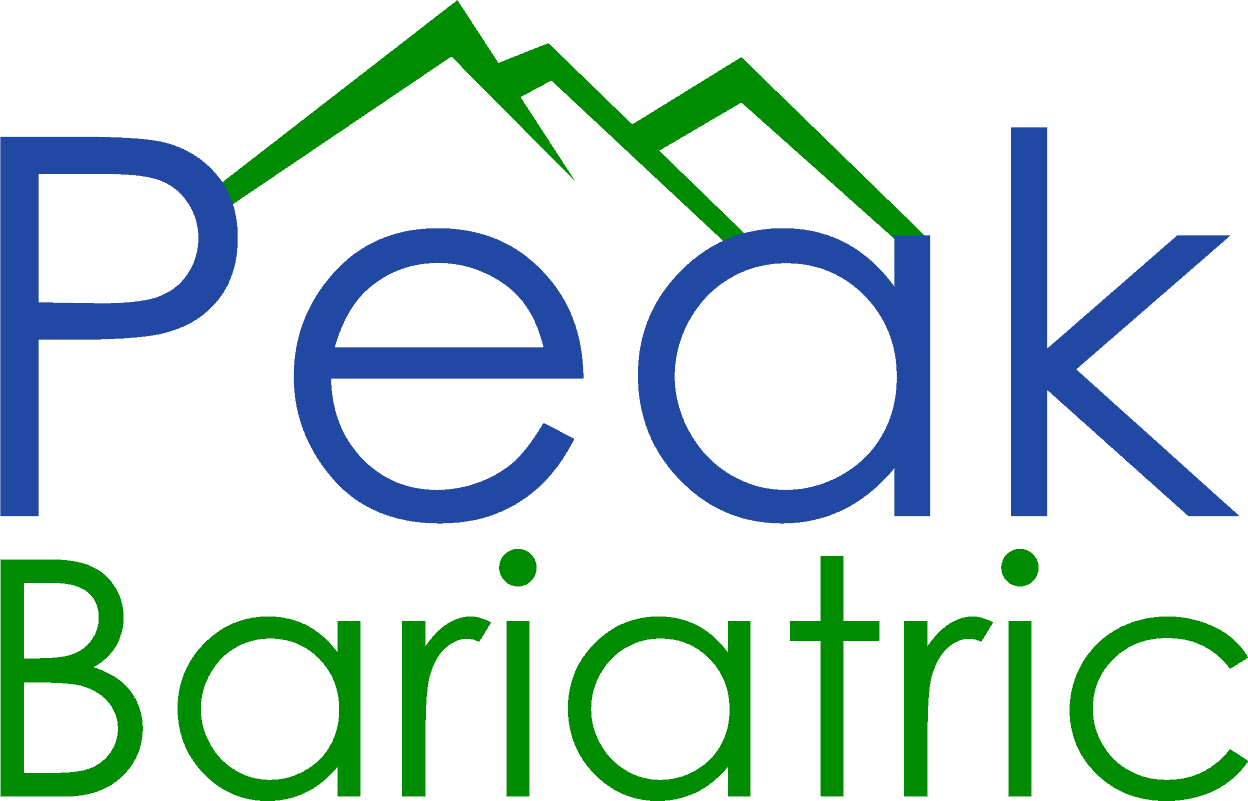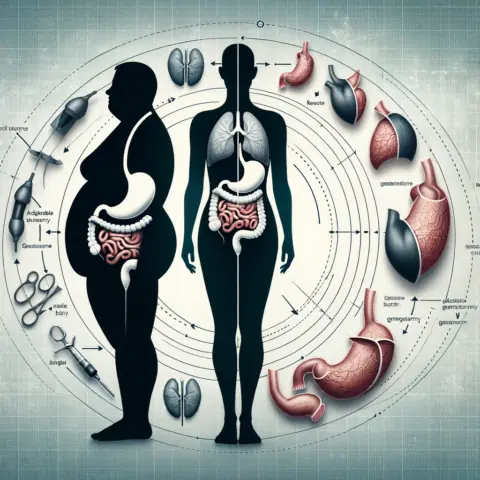Whether you’re a Dallas resident who has recently undergone gastric bypass or someone who is keen on understanding the post-operative lifestyle, it’s essential to know the role of diet in this transformational journey.
Section 1: Understanding Gastric Bypass
Before diving into the diet particulars, it’s crucial to fully understand the gastric bypass procedure. This surgery involves making changes to your stomach and small intestine to alter the way they absorb and digest food, aiding weight loss.
Gastric bypass is more than a physical transformation; it’s a lifestyle change that demands commitment to a healthy diet and regular exercise.
Let’s clear out some common myths and misconceptions about gastric bypass to ensure we’re starting on the right foot.
Section 2: The Role of Diet in the Gastric Bypass Journey
After gastric bypass surgery, your diet plays a critical role in your recovery and long-term weight maintenance. Your new stomach can only handle small amounts of food at a time. Hence, it’s vital to consume a balanced diet that can provide you with the necessary nutrients without causing discomfort or health risks.
You may be wondering how it’s possible to achieve weight maintenance after the surgery. To put your mind at ease, we’ve curated a guide on achieving long-term weight maintenance after gastric bypass.
Also, it’s worth noting that dietary changes aren’t just about the type of food you eat, but also about adjusting your eating habits. Here are some tips for patients on maintaining a healthy lifestyle.
Section 3: Components of a Post Gastric Bypass Diet
A successful post-gastric bypass diet consists of several components. First, you must consider the quantity and frequency of your meals. It’s recommended to have multiple smaller meals throughout the day rather than three large ones.
Second, the quality of food is paramount. A diet high in protein, coupled with low sugar and low fat, is usually recommended.
“A balanced diet after gastric bypass surgery should include sufficient amounts of protein, limited sugars, and fats, and a diverse mix of fruits, vegetables, and whole grains.”
We’ve compiled nutritional guidelines for Dallas gastric bypass patients that further delve into the subject.
Last but not least, hydration is key. However, to prevent discomfort, it’s suggested to avoid drinking fluids during meals and to wait for about 30 minutes after meals before consuming beverages.
If you’re feeling overwhelmed by these changes, don’t worry! You’re not alone, and there are plenty of resources to help you navigate this new journey, including finding support and community for your journey.
The Essential Post Gastric Bypass Diet – A Closer Look at What Foods Aid Recovery and Weight Management
Sustaining a Balanced Diet
The post-gastric bypass dietary plan is meant to provide a framework for eating well-balanced meals that align with your new anatomical structure and nutritional needs. It is not only about understanding what to eat but also learning the art of savoring your meals mindfully. Paying attention to your body’s signals for satiety and recognizing these signals early on is crucial.
An interesting concept to consider is the glycemic index (GI), a ranking of carbohydrate in foods according to how they affect blood glucose levels. It is advisable to opt for food items with a low GI, as they are slowly digested and absorbed, causing a slower and smaller rise in blood glucose levels. High-fiber foods such as whole grains, fruits, and vegetables usually have a lower GI and should be incorporated into your diet.
“Eating a low glycemic diet is not only beneficial for blood sugar control. It can also improve heart health and weight management and reduces the risk of developing type 2 diabetes.” – American Diabetes Association
However, it’s important to remember that weight management post gastric bypass surgery isn’t solely about food intake. The adoption of healthy lifestyle habits like regular physical activity also plays a significant role. As highlighted in navigating the gastric bypass journey, patients are encouraged to start walking as soon as they can post-surgery. Eventually, they can include more intense activities into their routine as their bodies allow. Physical activity complements your dietary efforts in maintaining a healthy weight and enhancing overall well-being.
Importance of Hydration
The importance of hydration cannot be overstated when it comes to the post gastric bypass diet. Dehydration can be a common issue for many post-operative patients due to reduced stomach capacity and changes in thirst perception. Thus, establishing a regular hydration routine is crucial. However, the timing of drinking fluids needs special attention. The “Nutritional Guidelines for Dallas Gastric Bypass Patients” recommends avoiding drinking fluids half an hour before and after meals to ensure proper digestion and absorption of nutrients.
But what about caffeine and alcohol? These can be tricky territories to navigate for post gastric bypass patients. As detailed in Dallas Gastric Bypass: Debunking Myths and Misconceptions, while moderate caffeine consumption is usually safe, alcohol should be strictly limited due to increased sensitivity and rapid absorption post surgery.
Coping with Diet-Related Challenges
Despite the best-laid plans, challenges are inevitable during the journey towards a healthy post-gastric bypass diet. Understanding these challenges, as discussed in overcoming common challenges after gastric bypass, can help you develop strategies to cope with them effectively. These challenges might include:
- Dumping syndrome: This occurs when food moves too quickly from the stomach into the small intestine, leading to symptoms like nausea, vomiting, abdominal pain, diarrhea, and faintness. Eating smaller meals, avoiding foods high in sugar, and incorporating a balance of protein and fat can help alleviate these symptoms.
- Altered taste and food preferences: After gastric bypass, many patients report changes in their taste preferences. This could be a body’s way of adapting to the new nutritional requirements.
- Vitamin and mineral deficiencies: Due to the changes in digestion and absorption, patients are at risk of deficiencies in certain vitamins and minerals. Adhering to prescribed supplement regimen is essential in preventing these deficiencies.
Maintaining a healthy diet after gastric bypass surgery may seem overwhelming at first, but with patience, practice, and support, it is an achievable goal. Support systems like family, friends, and community for your journey can provide much-needed encouragement and motivation. Remember, this is a lifelong commitment to your health and well-being.
Your journey to better health and sustainable weight management is more than just following a dietary plan. It’s about embracing a whole new lifestyle and mindset, one that encourages and supports your transformation.
The Future of Bariatric Surgery: Innovation and Personalization
In the world of medicine, the only constant is change. As new research findings come to light and innovative technologies continue to emerge, the field of bariatric surgery also evolves. Here, we delve into the future of bariatric surgery, highlighting some of the most promising trends and advancements that are shaping this medical field.
Personalized Approach to Bariatric Surgery
A key trend in the future of bariatric surgery is the shift towards a more personalized approach to treatment. This means taking into account each patient’s unique biological make-up, lifestyle, and preferences when deciding on the most appropriate surgical procedure.
As highlighted in personalized medicine and bariatric surgery, genetic and molecular research is playing an increasingly important role in helping doctors understand why some patients respond better to certain procedures than others.
For example, recent research has shown that certain genetic variants may affect how well a patient responds to a gastric bypass or sleeve gastrectomy. Similarly, studies are also examining the role of the gut microbiome (the community of bacteria in your digestive tract) in weight loss and health after bariatric surgery.
Technological Innovations
Another trend shaping the future of bariatric surgery is the growing role of technology. For example, advancements in robotic surgical systems are allowing for more precision and control during procedures. This translates into less invasive surgeries, reduced risk of complications, and quicker recovery times for patients.
Moreover, wearable technology and health applications are also finding their place in bariatric surgery. As discussed in technological advancements in bariatric surgery, these tools can provide valuable insights into a patient’s daily activity, dietary habits, and sleep patterns, aiding both in the decision-making process before surgery and in long-term weight management post-surgery.
Enhanced Pre and Post-operative Care
Recognizing the importance of holistic care, the future of bariatric surgery also sees improvements in pre and post-operative care.
In the pre-operative stage, the focus is on thorough patient education and preparation. This includes psychological assessments and counseling to help patients understand the implications of surgery and to cope with the significant lifestyle changes post-surgery.
Post-operatively, there’s an increased emphasis on long-term follow-up and support. As highlighted in life after bariatric surgery, this includes regular medical check-ups, dietary counseling, exercise guidance, and mental health support. The ultimate goal is not just weight loss, but the overall improvement in quality of life and sustained health outcomes.
In Conclusion
The future of bariatric surgery is promising, with a more personalized, technology-driven, and holistic approach to treatment. These advancements aim to enhance patient outcomes, not only in terms of weight loss but also in terms of improved health and wellbeing.
As a patient, staying informed about these advancements can help you make informed decisions about your health. At the same time, it’s important to remember that bariatric surgery is just one tool in your weight loss journey. Ongoing lifestyle changes, including a healthy diet and regular physical activity, are crucial for long-term success.
“Weight loss surgery is not a quick fix. It’s an ongoing journey toward weight loss through lifestyle changes.” – Mayo Clinic.
As you navigate your weight loss journey, remember to seek out support from your medical team, family, and friends, as well as the broader bariatric surgery community. You are not alone in this journey, and together, you can achieve your health and wellness goals.
Key Takeaways
- The future of bariatric surgery is leaning towards a personalized approach, taking into account each patient’s unique biological makeup, lifestyle, and preferences.
- Genetic and molecular research are increasingly important in determining which bariatric procedures may be most effective for individual patients.
- Technology is playing a growing role in bariatric surgery, with advancements in robotic surgical systems allowing for more precision, control, less invasive procedures, and quicker recovery times.
- Wearable technology and health applications provide valuable insights into a patient’s daily activities and habits, aiding in decision-making and long-term weight management.
- There’s a greater emphasis on pre and post-operative care, including patient education, preparation, long-term follow-ups, dietary counseling, exercise guidance, and mental health support.
- The overall goal is not just weight loss, but the improvement of quality of life and sustained health outcomes. Bariatric surgery is a tool, but ongoing lifestyle changes are crucial for long-term success.
- Support from the medical team, family, friends, and the broader bariatric surgery community is essential in the weight loss journey.







